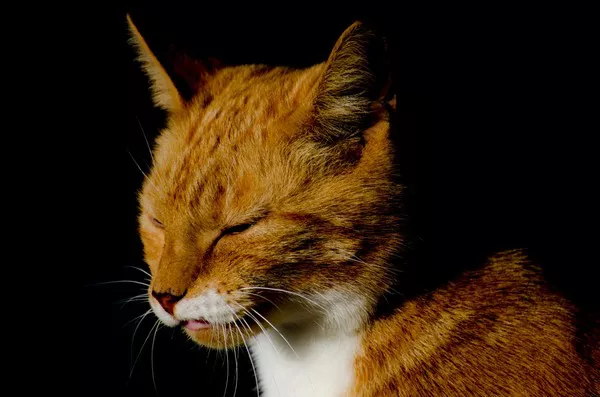Newborn kittens are a delightful addition to any household, but they require attentive care, including monitoring their bowel movements. Understanding when newborn kittens start to poop is essential for ensuring their health and well-being. In this comprehensive guide, we’ll explore the timeline of bowel movements in newborn kittens, factors that influence their bowel habits, signs of potential issues, and tips for promoting healthy bowel function.
Welcoming a litter of newborn kittens into the world is an exciting and rewarding experience. However, caring for these tiny felines requires knowledge and attention to detail, particularly when it comes to their bowel movements. Like human infants, newborn kittens rely on their mothers for nourishment and assistance with bodily functions during their early weeks of life. Understanding the typical timeline for when newborn kittens begin to poop can help ensure they are thriving and developing as they should.
Understanding the Digestive System of Newborn Kittens
Before delving into the timing of newborn kittens’ first bowel movements, it’s essential to understand the development of their digestive system. Kittens are born with an underdeveloped digestive tract, and their ability to digest food and eliminate waste gradually improves during the first few weeks of life. At birth, kittens primarily rely on their mother’s milk for nourishment, as it provides essential nutrients and antibodies crucial for their growth and immunity.
Timeline of Newborn Kittens’ Bowel Movements
The timeline for when newborn kittens start to poop can vary depending on several factors, including their age, health status, and feeding regimen. Here is a general overview of the typical progression of bowel movements in newborn kittens:
Day 1 to 2:
During the first 24 to 48 hours after birth, newborn kittens typically do not pass feces. This period is known as the “transient stool retention phase.” It is normal for kittens to have an empty rectum during this time, as their digestive system is still maturing, and they are primarily focused on nursing and bonding with their mother.
Day 2 to 3:
Around the second or third day of life, newborn kittens may start to produce their first bowel movements. These initial stools, known as meconium, are dark, sticky, and tar-like in appearance. Meconium consists of waste products accumulated in the kitten‘s intestines during gestation and is expelled shortly after birth.
Day 3 to 4:
As newborn kittens continue to nurse and their digestive system becomes more active, they will produce more frequent bowel movements. The consistency of their stools may transition from meconium to a softer, yellowish substance resembling mustard or cottage cheese. These transitional stools indicate that the kitten’s digestive system is functioning properly and that they are digesting their mother’s milk effectively.
Day 5 and Beyond:
By the fifth day of life and onwards, newborn kittens should have regular bowel movements multiple times a day. Their stools should be soft, formed, and light brown in color. As long as the kittens are nursing well and receiving adequate nutrition from their mother, they should continue to have healthy bowel movements throughout the nursing period.
Factors Influencing Newborn Kittens’ Bowel Habits
Several factors can influence the timing and frequency of bowel movements in newborn kittens. These include:
Maternal Care:
The presence and care provided by the mother cat play a significant role in regulating the bowel habits of newborn kittens. Mother cats stimulate their kittens’ elimination reflex by licking their perineal area after nursing. This action mimics the grooming behavior that wild cat mothers use to stimulate their kittens to urinate and defecate. Kittens separated from their mother or hand-reared may require additional assistance with elimination, such as gentle stimulation with a warm, damp cloth.
Feeding Method:
The type of feeding method used for newborn kittens can also impact their bowel movements. Kittens that receive formula milk from a bottle may have different bowel habits compared to those nursing directly from their mother. Formula-fed kittens may produce stools that are firmer and have a different odor compared to kittens fed exclusively on mother’s milk.
Health Status:
The overall health and well-being of newborn kittens can affect their digestive function. Kittens that are ill, weak, or experiencing health problems may have irregular bowel movements or signs of gastrointestinal distress. It’s essential to monitor newborn kittens closely for any changes in their bowel habits and seek veterinary care if concerns arise.
Signs of Potential Issues
While occasional variations in bowel habits are normal for newborn kittens, certain signs may indicate underlying health issues that require attention. Some red flags to watch for include:
Constipation: Kittens straining to defecate or passing hard, dry stools may be experiencing constipation, which can result from dehydration, dietary imbalances, or underlying health conditions.
Diarrhea: Watery or loose stools in newborn kittens can indicate diarrhea, which may be caused by infections, dietary changes, or parasitic infestations.
Abdominal Discomfort: Kittens displaying signs of abdominal pain, such as restlessness, vocalization, or reluctance to nurse, may have gastrointestinal issues that need evaluation by a veterinarian.
Failure to Pass Stools: Newborn kittens that have not produced any bowel movements within the first few days of life or appear bloated and uncomfortable should be examined promptly to rule out obstructions or other complications.
Promoting Healthy Bowel Function in Newborn Kittens
To support optimal digestive health in newborn kittens, consider the following tips:
Provide Adequate Nutrition: Ensuring that newborn kittens receive sufficient milk from their mother or an appropriate milk replacer is essential for promoting healthy bowel function and overall growth.
Monitor Hydration: Proper hydration is crucial for preventing constipation and maintaining normal bowel movements. Be sure to offer fresh water to nursing mother cats and monitor the fluid intake of hand-reared kittens.
Encourage Elimination: If caring for orphaned or hand-reared kittens, gently stimulate their anal region with a warm, damp cloth after feeding to promote elimination. Mimicking the mother cat’s grooming behavior can help stimulate the kittens’ natural elimination reflex.
Maintain Cleanliness: Keep the kittens’ nesting area clean and dry to prevent bacterial contamination and reduce the risk of infections that can affect their digestive health.
Seek Veterinary Care: If you notice any concerning changes in the kittens’ bowel habits or signs of gastrointestinal distress, consult a veterinarian promptly for evaluation and treatment.
See Also: How Often Kittens Poop
Conclusion
Understanding when newborn kittens start to poop is an important aspect of kitten care for cat owners and breeders alike. By monitoring the kittens’ bowel habits, providing appropriate care and nutrition, and seeking veterinary assistance when needed, you can help ensure the health and well-being of these adorable feline companions. Remember that every kitten is unique, and variations in bowel habits are normal during the early stages of life. With attentive care and proper guidance, you can help newborn kittens thrive and grow into healthy adult cats.



























